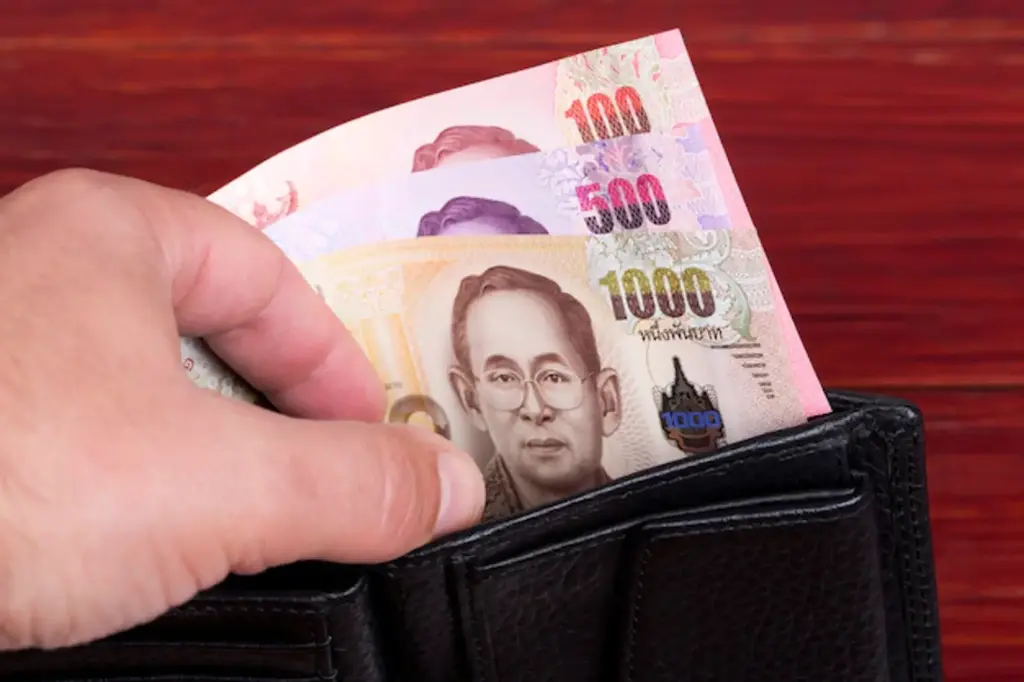Business
Thailand to Issue 60 Billion Baht in Government Savings Bonds

Beginning December 7th, Thailand’s Finance Ministry’s Public Debt Management Office will issue 60 billion baht in government savings bonds for public subscription.
According to Deputy Government Spokesperson Rachada Dhnadirek, the “Sukjai Hai Om” (Happy Saver) bonds will be available with a 3-year maturity period and a 3% interest rate payable every three months, as well as a 7-year maturity period and a 3% interest rate payable every three months.
The public in Thailand can subscribe via the “Sor Bor Mor Wallet” app, which offers 15 billion baht in bonds, or through Krung Thai, Bangkok, Kasikorn, and Siam Commercial banks. The total value of bonds available through banks is 45 billion baht.
Those interested can download the “Pao Tang” app and deposit funds into the “Sor Bor Mor Wallet” using their mobile banking system or Krung Thai Bank accounts.
Subscription is open to anyone over the age of 15, with investment amounts ranging from 100 to 20 million baht.
The first round of subscriptions will be accepted through the four banks on December 13th and 14th. The starting point is 1,000 baht. Bonds worth 40 billion baht are available.
On December 19th and 20th, the remaining 5 billion baht in bonds with a 10-year maturity period will be made available to non-profit legal entities on a first come, first served basis. The bonds have a fixed interest rate of 2.9% that is paid every six months.
The minimum investment is 1,000 baht, with no maximum limit on the total amount available.
Thailand’s public debt stood at 10.37 trillion baht at the end of September, accounting for 60.41% of GDP. The cap is set at 70% of GDP.
How Thai law protects debtors in Thailand
Despite the fact that Thailand has laws to protect debtors, many Thais are unaware of how to deal with repayment demands. When they fall behind on their payments, some of them face verbal or even physical abuse. Others will go as far as faking death to avoid creditors, as a teenage girl recently did.
“When you’re in debt, you don’t have to flee. You are not required to fake your death or to endure physical assaults. Even if you owe money to others, you are protected under Thai law,” said well-known lawyer Ronnarong Kaewpetch, who leads a network that campaigns for social justice.
What exactly does the law say?
The Debt Collection Act, enacted in 2015, restricts the times when moneylenders or their representatives can contact their debtors. For example, if they want to follow up on repayments, they can only do so between 8 a.m. and 8 p.m. on weekdays and 8 a.m. to 6 p.m. on weekends. Furthermore, unless they are friends or relatives of the debtor, they are only permitted to contact their debtors once per day.
In the case of lenders and borrowers, contact includes any form of communication, such as messaging services, phone calls, or physical visits. If a moneylender or their agent shows up in person to demand payment, they can only go to the borrower’s address. They are not permitted to seek repayment at other locations, such as the borrower’s workplace or relatives’ homes.
Demands for repayment may only be made to the debtor, not to people they may know, under the law, because doing so may harm the debtor’s reputation. Moneylenders or their representatives can only inform the debtor’s parents, spouse, children, or other people at the contact address if they are asked why they are there.
The law also prohibits lenders from seizing debtors’ assets or verbally or physically abusing them.
Borrowers who are behind on their payments should also disregard any threats from lenders to file police reports or have them arrested, because failure to pay is not a criminal offence. Moneylenders can only seek repayment through civil courts, and assets can only be seized if the court rules in their favour.
Threats are also prohibited, and messages written on envelopes visible to people other than the debtor are also prohibited.

Creditors who break the law face a fine and/or incarceration. A threat or physical assault, for example, can result in up to five years in prison and/or a 500,000 baht fine.
Any threat or letter written to the debtor identifying the debt on envelopes is also an offence punishable by up to a year in prison and a 100,000 baht fine.
Debtors who believe they are being attacked or that their creditor is being unfair can contact the Financial Consumer Protection Centre at 1213.
What options do creditors have?
Creditors, on the other hand, are not without protection under the law. If they have clear evidence that they lent money, they have the legal right to get the money back with interest within legal limits.
If the loan exceeds 2,000 baht, the creditor should prepare and sign a contract with the borrower in front of witnesses on both sides. The contract should include the full names of both the lenders and the borrowers, the date of signing, the repayment schedule, and the interest rate.
Thai courts now recognize loans made through social media accounts. So, if a borrower breaches a written promise to repay, the lender can go to court to recover the funds.
Source: Thai PBS



















![Play Online Blackjack In Australia [2024]: Top 10 Online Australian Blackjack Sites 23 Play Online Blackjack in Australia [2024]: Top 10 Online Australian Blackjack Sites](https://www.chiangraitimes.com/wp-content/uploads/2024/03/word-image-303235-1-80x80.jpeg)











